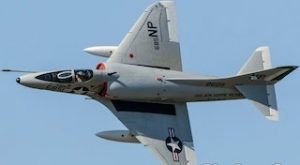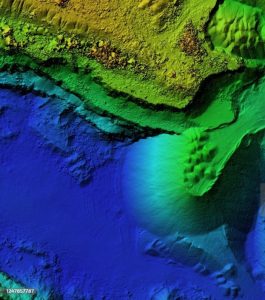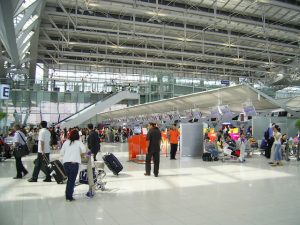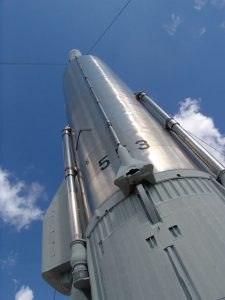Fuel Management For Efficient Operations: Insights From Airline Pilot Standards (APS) Courses
 Fuel management is a crucial component of aviation operations, directly impacting cost efficiency, environmental sustainability, and overall flight safety. The Airline Pilot Standards (APS) course offers comprehensive training on effective fuel management techniques, equipping pilots with the knowledge and skills needed to optimize fuel consumption and ensure more efficient operations. This article delves into the intricacies of fuel management as taught in APS courses, exploring its importance, key components, advanced tools, and best practices.
Fuel management is a crucial component of aviation operations, directly impacting cost efficiency, environmental sustainability, and overall flight safety. The Airline Pilot Standards (APS) course offers comprehensive training on effective fuel management techniques, equipping pilots with the knowledge and skills needed to optimize fuel consumption and ensure more efficient operations. This article delves into the intricacies of fuel management as taught in APS courses, exploring its importance, key components, advanced tools, and best practices.
Importance of fuel management in aviation
Fuel management in aviation encompasses the planning, monitoring, and efficient use of fuel throughout all phases of a flight. Its significance cannot be overstated due to several critical factors:
Cost efficiency
Fuel costs represent a significant portion of an airline’s operating expenses. Effective fuel management can lead to substantial cost savings by reducing unnecessary fuel consumption, optimizing flight paths, and implementing fuel-efficient practices.
Environmental sustainability
Aviation contributes to carbon emissions, impacting global climate change. By managing fuel efficiently, airlines can reduce their carbon footprint, contributing to environmental sustainability and meeting regulatory requirements for emissions.
Flight safety
Proper fuel management ensures that aircraft have adequate fuel reserves for emergencies, unexpected delays, and diversions. It enhances flight safety by preventing fuel starvation and ensuring compliance with regulatory fuel requirements.
Components of fuel management training in APS course
APS courses provide a structured approach to fuel management training, covering various essential components to ensure pilots are well-prepared to manage fuel efficiently.
1) Pre-flight fuel planning
Effective fuel management begins with meticulous pre-flight planning. APS courses train pilots to:
-
- Calculate fuel requirements: Pilots learn to accurately calculate fuel requirements based on the flight’s duration, aircraft weight, weather conditions, and alternate airports. This includes calculating the necessary fuel reserves for contingencies.
- Analyse weather forecasts: Understanding and interpreting weather forecasts are crucial for fuel planning. Pilots are trained to anticipate the impact of weather conditions on fuel consumption and adjust fuel loads accordingly.
- Evaluate route efficiency: APS courses teach pilots to analyse different routes and select the most fuel-efficient options. This involves considering airways, direct routing opportunities, and avoiding congested airspace.
- Plan for alternate airports: Pilots learn to select appropriate alternate airports in case of diversions, ensuring that they carry enough fuel to reach these alternates under various scenarios.
2) In-Flight Fuel Management
Managing fuel consumption during flight is equally important. APS courses cover several key aspects of in-flight fuel management:
-
- Fuel monitoring: Pilots are trained to continuously monitor fuel levels using cockpit instruments and onboard systems. This helps in detecting any discrepancies and making necessary adjustments promptly.
- Optimizing thrust and speed: APS courses emphasise the importance of optimizing thrust settings and cruise speeds to achieve maximum fuel efficiency. Pilots learn to use cost index calculations to balance speed and fuel consumption effectively.
- Altitude and route adjustments: Pilots are taught to make in-flight adjustments to altitude and route based on real-time weather data, air traffic control (ATC) instructions, and fuel consumption patterns. These adjustments help in maintaining optimal fuel efficiency.
- Engine management: Proper engine management techniques, such as reducing thrust during descent and using single-engine taxi procedures, are covered in APS courses to minimize fuel burn.
3) Post-flight analysis
Post-flight analysis is a critical component of fuel management, helping pilots and airlines to evaluate performance and identify areas for improvement:
-
- Fuel consumption reports: Pilots learn to generate and analyse fuel consumption reports to understand how actual fuel usage compared to planned values. This analysis helps in identifying inefficiencies and optimizing future flights.
- Feedback and continuous improvement: APS courses emphasise the importance of continuous improvement. Pilots receive feedback on their fuel management performance and participate in debriefing sessions to discuss lessons learned and best practices.
Advanced tools and technologies for fuel management
Modern aviation relies heavily on advanced tools and technologies to enhance fuel management. APS courses provide pilots with the knowledge and skills to utilise these tools effectively:
Flight Management Systems (FMS)
Flight Management Systems (FMS) are integral to modern aircraft, providing comprehensive fuel management capabilities. APS courses train pilots to use FMS for:
-
- Route planning: FMS allows for precise route planning and optimisation, considering waypoints, airways, and direct routes to minimise fuel consumption.
- Fuel predictions: Real-time fuel predictions based on current conditions help pilots make informed decisions about adjustments to optimise fuel use.
- Performance monitoring: FMS continuously monitors aircraft performance, enabling pilots to maintain optimal settings for fuel efficiency.
Aircraft performance monitoring systems
Advanced aircraft performance monitoring systems provide real-time data on fuel consumption, engine performance, and aircraft efficiency. APS courses teach pilots to interpret this data and use it to make adjustments that enhance fuel management.
Weather radar and predictive tools
Weather radar and predictive tools are essential for avoiding adverse weather conditions that can impact fuel consumption. APS courses train pilots to use these tools to anticipate weather changes and adjust flight paths accordingly.
Human factors in fuel management
Human factors play a significant role in effective fuel management. APS courses address these factors to ensure that pilots are well-prepared to manage fuel efficiently:
-
- Decision-making skills: Effective decision-making is crucial for optimizing fuel use. APS courses teach structured decision-making models, such as the OODA loop (Observe, Orient, Decide, Act) and the DECIDE model (Detect, Estimate, Choose, Identify, Do, Evaluate). These models provide pilots with systematic approaches to evaluate options and make informed decisions under pressure.
- Stress and workload management: High stress and workload can impair decision-making and situational awareness, impacting fuel management. APS courses include training on stress management techniques, such as controlled breathing and workload prioritization, to help pilots maintain composure and focus during critical phases of flight.
- Communication and teamwork: Effective communication and teamwork are essential for fuel management in a multi-crew environment. APS courses emphasise Crew Resource Management (CRM) principles, teaching pilots to communicate clearly, share information, and collaborate effectively to enhance situational awareness and decision-making.
Regulatory compliance and best practices
Fuel management training in APS courses aligns with regulatory standards and best practices established by international aviation organisations and regulatory authorities:
-
- International Civil Aviation Organization (ICAO) standards: The International Civil Aviation Organization (ICAO) sets global standards for fuel management and related training. APS courses ensure that pilots are familiar with ICAO guidelines and understand their role in maintaining compliance with these standards.
- Federal Aviation Administration (FAA) regulations: In the United States, the Federal Aviation Administration (FAA) mandates specific training requirements for fuel management. APS courses include training on FAA regulations, ensuring that pilots meet the necessary standards and are prepared to apply their skills in accordance with FAA guidelines.
- Industry best practices: In addition to regulatory standards, APS courses incorporate industry best practices for fuel management. These practices are developed through collaboration among airlines, aviation organizations, and safety experts, ensuring that pilots receive training that reflects current industry standards and advancements.
Role of continuous improvement and recurrent training
Fuel management is an ongoing process that requires continuous improvement and recurrent training to ensure that pilots remain proficient and up-to-date with the latest techniques and standards:
-
- Recurrent training programs: Recurrent training programs are essential for keeping pilots’ skills sharp and ensuring that they remain proficient in fuel management. APS courses include recurrent training modules, where pilots regularly practice fuel planning, in-flight adjustments, and real-time decision-making.
- Feedback and evaluation: Continuous improvement is a key aspect of fuel management training. Pilots participate in regular evaluations and receive feedback on their performance. This feedback helps identify areas for improvement and ensures that pilots are always working towards enhancing their skills.
- Staying current with technological advancements: The field of aviation is constantly evolving, with new technologies and procedures being developed to enhance safety and efficiency. APS courses ensure that pilots stay current with these advancements, providing training on the latest tools and techniques for fuel management.
Cost saving through fuel management
Fuel management is a critical component of achieving operational efficiency, cost savings, and environmental sustainability in aviation. Airline Pilot Standards (APS) courses provide pilots with the essential skills and knowledge required to manage fuel effectively, from pre-flight planning to in-flight adjustments and post-flight analysis.
Through comprehensive training on calculating fuel requirements, analyzing weather forecasts, optimizing routes, and using advanced tools and technologies, APS courses equip pilots with the expertise needed to navigate the complexities of modern flight operations. By aligning with regulatory standards and industry best practices, and emphasizing continuous improvement and recurrent training, APS courses ensure that pilots are well-prepared to optimize fuel management and contribute to a safer, more efficient aviation industry.
By mastering fuel management techniques, pilots can significantly reduce fuel consumption, enhance flight safety, and support environmental sustainability. As aviation continues to evolve, the importance of effective fuel management will only grow, making the training provided by APS courses an invaluable asset for pilots and airlines alike.










